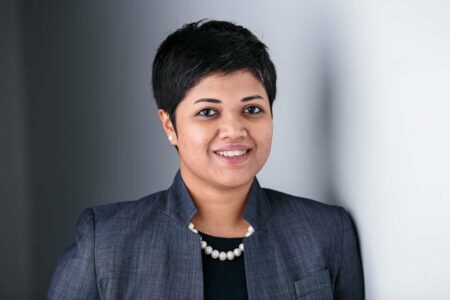Sarkar Presents Research at SHOT Meeting, Tobin Project Workshop
Jayita Sarkar, Assistant Professor of International Relations at the Frederick S. Pardee School of Global Studies at Boston University, recently presented her research at the annual meeting of the Society for History of Technology (SHOT) in Philadelphia, Pennsylvania on October 26-29, 2017, and at the Tobin Project workshop on “Reassessing Threat Assessments from the Early Nuclear Era” in Cambridge on Oct. 20-21, 2017.
At the SHOT meeting, Sarkar presented her project on U.S.-Indian relations through the lens of ‘atomic’ raw materials during the early Cold War era. The paper examines how India used its possession of strategic materials like monazite and beryl to seek and obtain technologies from abroad (notably, France), and how it then sold the finished products like thorium nitrate to whoever sought to buy (including Communist China). This perturbed the Eisenhower administration and challenged U.S. Cold War objectives enough such that the United States decided to buy up most of India’s surplus thorium nitrate at a higher than market price. The paper underlines how weaker states like India exercised their autonomy within the constraints of the asymmetrical power structures of the Cold War international system.
At the Tobin Project workshop, Sarkar discussed her new project on India’s nuclear learning from the Chinese experience since the 1960s in terms of the utility of nuclear weapons in foreign policies, and the inconsistencies in U.S. nonproliferation policy.
Jayita Sarkar, an historian by training, is Assistant Professor of International Relations at Boston University’s Frederick S. Pardee School of Global Studies. Her expertise is in the history of U.S. foreign policy, nuclear proliferation, the global Cold War, South Asia and Western Europe. Her research has appeared or is forthcoming in the Journal of Cold War Studies, Journal of Strategic Studies, Cold War History, International History Review, and elsewhere. Dr. Sarkar has held fellowships at MIT, Harvard, Columbia and Yale universities, and obtained a doctorate in International History from the Graduate Institute Geneva in Switzerland.
